Role of AI in Drug Discovery 2024: Exploring the Benefits of Scinapse Trends for Modern Research

The field of drug discovery is evolving at an unprecedented pace, driven by rapid advancements in technology and our understanding of biological systems and medicinal chemistry. As we discover the complexities of pharmaceutical research in 2024, artificial intelligence (AI) plays a pivotal role to accelerate research and development processes. In these times, when staying current is not just advantageous but essential, researchers and pharmaceutical companies are increasingly turning to AI-powered solutions to maintain their competitive edge.
This article explores how AI, particularly through platforms like Scinapse Trends and its Research Intelligence feature, can be leveraged to stay at the forefront of drug discovery research.
The Intersection of AI and Drug Discovery
The integration of AI in drug discovery is not a recent phenomenon. For decades, computational methods have been employed to assist in various aspects of pharmaceutical research. However, the recent explosion in data availability, coupled with significant advancements in machine learning algorithms, has brought AI to the forefront of drug discovery innovation.
Currently, AI is being applied across the entire drug discovery pipeline, from target identification and validation to lead optimization and even clinical trial design. Machine learning models are being used to predict protein structures, screen vast libraries of compounds, and identify potential drug candidates with unprecedented speed and accuracy.
As we look to the future, the role of AI in drug discovery is only expected to grow. Emerging trends include the use of federated learning for secure, decentralized model training on sensitive data, and the integration of AI with other cutting-edge technologies like CRISPR for more precise target validation.
Role of AI in Drug Discovery Research Trends: Using Scinapse Research Intelligence Feature
To stay current with drug discovery research, AI-powered tools like Scinapse.io are becoming indispensable for researchers aiming to stay at the forefront of pharmaceutical research.
It uses advanced algorithms to analyze vast amounts of scientific literature, patents, clinical trials, and other data sources to provide researchers with actionable insights for their research.
Trends in Research Paper Quality and Quantity
- Publication Volume
There was a high number of publications in 2021 and 2022 (over 5,700 each year), followed by a significant drop in 2023. 2024 shows signs of recovery, though not reaching previous levels.
(The values for 2023 and 2024 contain only partially verifiable data.)
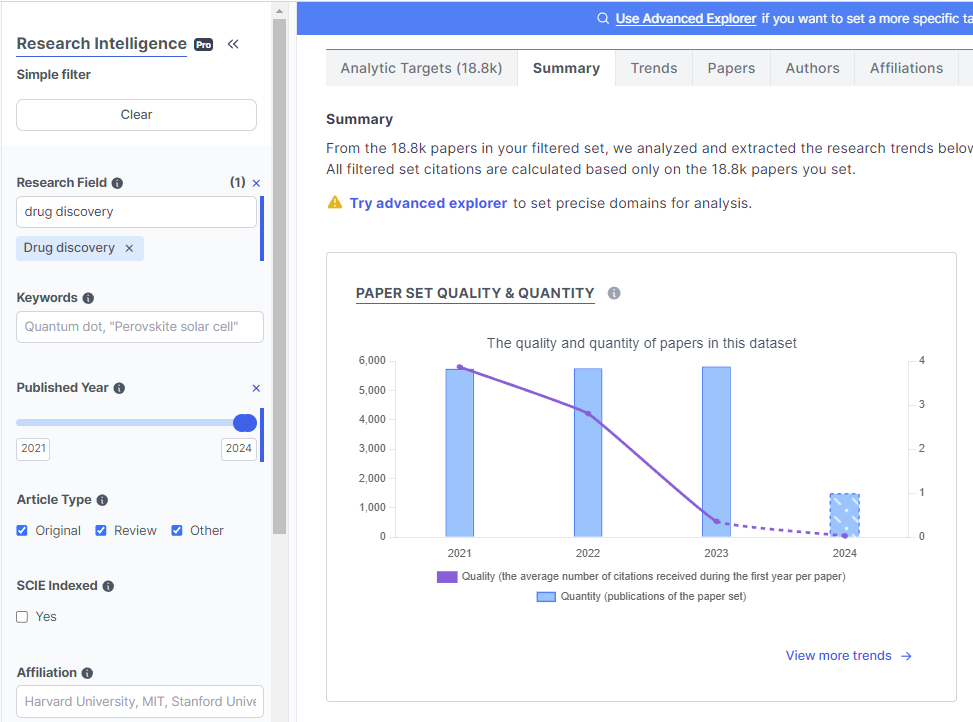
- Citation Impact
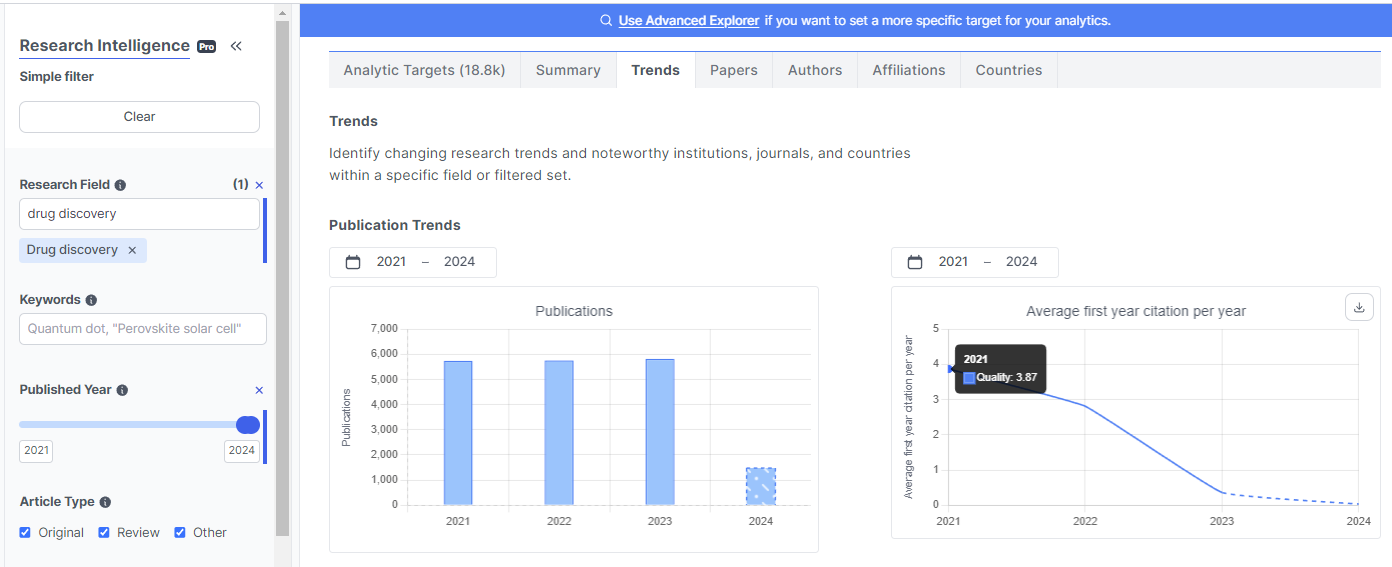
The quality metric is 3.87, indicating a relatively high level of quality in the research being cited. This suggests that in 2021, the publications were not only being cited frequently but were also considered of high quality by the academic community.
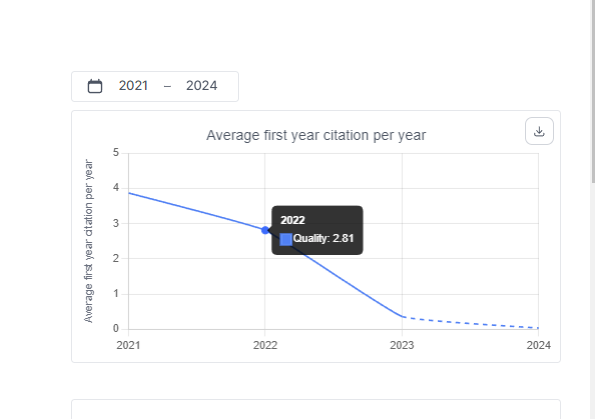
The quality metric decreased to 2.81. This reduction in both citations and quality indicates a decline in the perceived value and impact of the publications. The reasons for this decline could be multifaceted, including increased competition, changes in research trends, or shifts in academic focus.
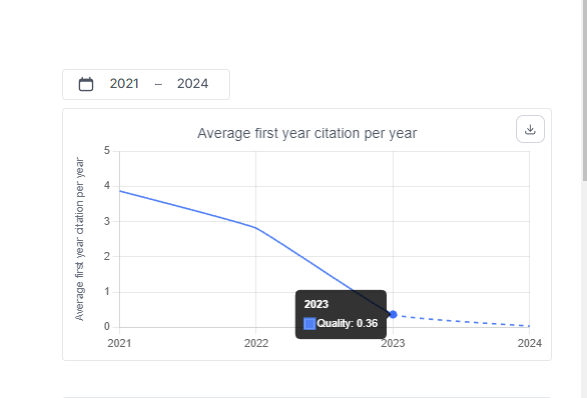
Even considering that not all data has been fully reflected, the quality metric declined sharply to 0.36 in 2023, showing a drastic reduction in the perceived importance and influence of the publications. This steep decline is alarming and suggests that the research being published in 2023 is not resonating with the academic community, possibly due to decreased relevance, innovation, or rigor.
These trends highlight the dynamic nature of the field and the potential impact of external factors on research output and quality.
Key Takeaways
The integration of AI tool like Scinapse.io is transforming drug discovery research. By leveraging this advanced platform, researchers can steer this research landscape more effectively, staying abreast of global trends, identifying promising research directions, and fostering collaborations. As the field continues to evolve, the synergy between human expertise and AI capabilities will be crucial in driving innovation and accelerating the drug discovery process.
As we look to the future, one thing is clear: the integration of AI into drug discovery research is not just a passing trend, but a fundamental shift in how we approach the challenge of developing new therapies.
written by Uttkarsha B
Never re-search again.
Scinapse is made by researchers for researchers.
Join the next generation of research at ⏯️ https://scinapse.io/
Pluto Labs
Pluto Labs helps researchers focus on their research by improving several inefficiencies in the academic research process. We offer data-driven insights from academic papers, allowing users to easily obtain review-level results for their desired range of papers.
https://pluto.im/

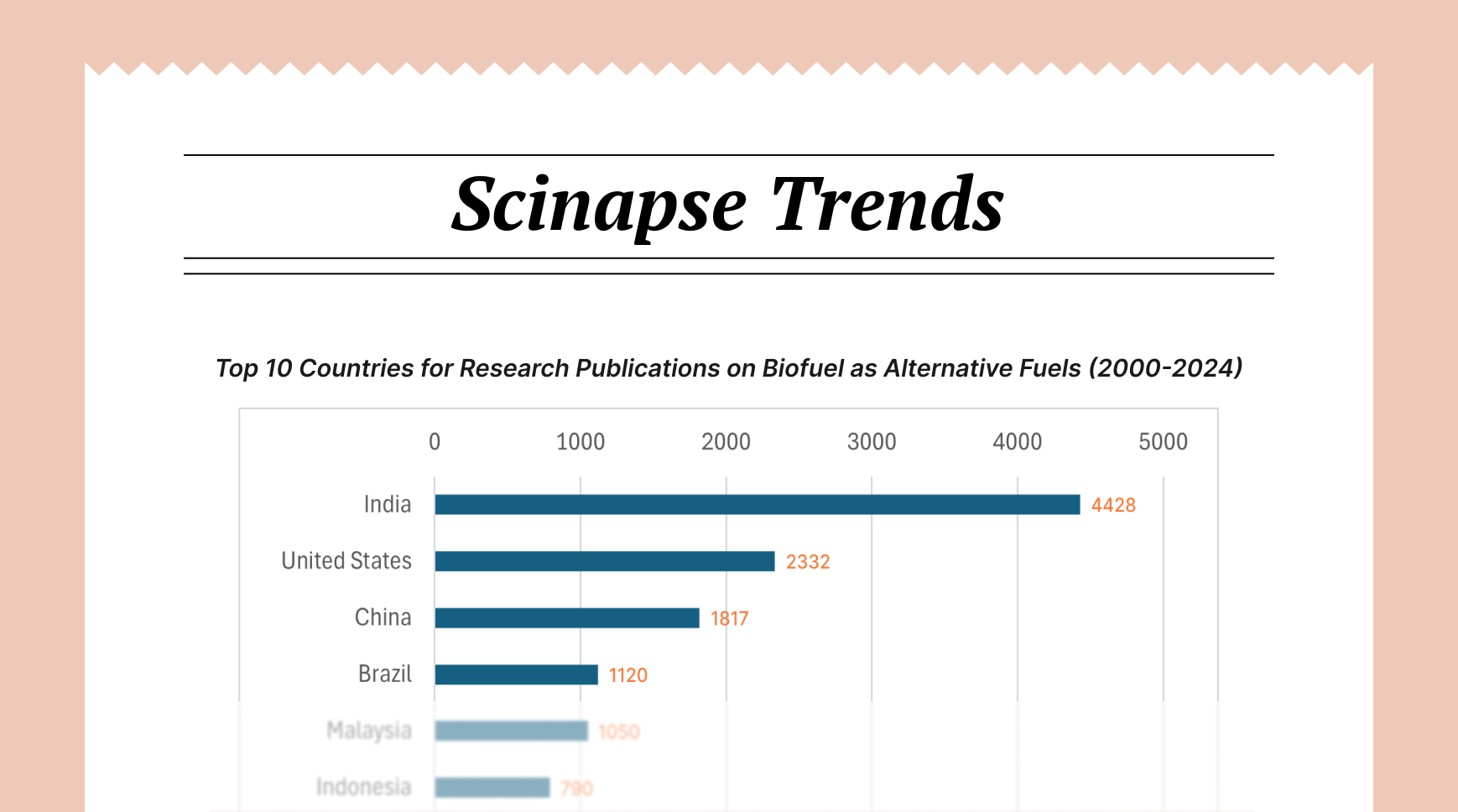



Comments ()